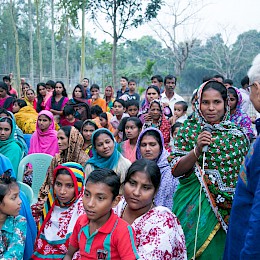
Agricultural Extension Services are interventions and activities by government and Non-State Actors that facilitate the access of knowledge, information, and technologies by farmers, their organizations, and other value chain actors as well as mediating their interaction with other relevant organizations; and supporting them to develop their technical and management capacity in agriculture and family life through a streamlined Agricultural Extension System. The nexus between agricultural extension services and nutrition outcome realization cannot be underestimated.
Whereas, the focus of agricultural extension services is on increasing production and trade linkages, its fundamental commitment to improve food security acts as a vehicle through which nutrition outcomes can be realized both at household and community level.
The four pathways of food security are a great opportunity through which nutrition is improved under the Agricultural services extension system such as availability, access, utilization, and stability.
Availability: many smallholder farmers grow food for their own consumption and sell, hence availability of nutritious food is promoted through strengthening market linkages to enable farmers to grow, sell and purchase such foods from the markets.
Access: should go beyond the staple but equally promote production and consumption of nutritious dense foods. The extension system addresses food access in multiple ways including: increased production of diverse foods for the household’s consumption, improved access to markets, improved availability of nutrient-dense foods in the marketplace and gender-equitable decision making related to agricultural production and income.
Utilization: this pillar relates to the body’s ability to fully utilize nutrients in the food (FAO 2006) and is influenced by food processing and preparation, and diet quality.
Improved food processing reduces the mal-absorption of certain minerals in cereals, legumes, and other edible seeds that also contain phytic acid; as such, Agriculture Extension system can reinforce the realization of this pillar by not only being conduits of nutrition sensitive information but also promoting adequate food processing and preparation skills and knowledge.
Stability: ability for people to have access to diverse foods throughout is imperative; the Agricultural extension system has a role to play regarding teaching farming households the good agro ecological and water management practices to enable production to continue throughout the entire season.
Back to overview



